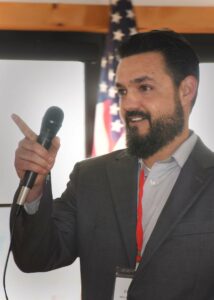Election losses refocus city, fire district, citizens on new approaches
By: Eric Valentine

While many articles in the news have been focusing on how the midterms are shaping up now that primary season is wrapped up, the issues and the candidates that did not win enough votes shouldn’t be overlooked. Because when you take a look at three particular Valley losers, you may be seeing what Valley challenges won’t be going away any time soon.
A LOT Of Disappointment
Starting up north in Ketchum, an effort to inject funds into development of workforce housing coffers failed. Specifically, Ketchum leaders placed a tax increase on the ballot (called a local option tax or LOT) wherein revenues would be earmarked to subsidize the cost of affordable housing projects. There’s no bigger issue in the Valley than the cost of and low inventory of workforce housing, and voters said ‘oh well.’
Mayor Neil Bradshaw did the only thing he could do after the election—tried to see things positively.
“While a majority supported the local option tax (LOT) housing initiative, we did not reach the 60% threshold for the measure to pass,” Bradshaw said. “I want to thank everyone who participated in this ballot initiative. We value your voice and your opinion. We will learn from this result and will work harder to craft a way forward to address our housing crisis in a direction that has broader community support.”
Ketchum leadership and city staff spent much of the past year working on the city’s
Housing Action Plan—a guidebook that identifies several actions Ketchum can take to increase housing supply. Most require funding. With the ballot measure failing to pass, Bradshaw said the city will focus on the actions that have “smaller funding requirements.”
“We will consider revisiting this funding initiative a year from now, possibly without a retail tax component. In the meantime, we will work with the ‘housing tools’ that we have,” Bradshaw said.
Bond Goes Down In Flames
Extreme drought conditions and a potential rescue situation taking place, literally, on the morning of the primary, wasn’t enough to convince voters in the Wood River Fire District to approve a bond that would build a new fire station for those crews and equipment.
“I talked to half a dozen folks personally in the weeks leading up to the election. They expressed concerns about the location, the zoning, the cost, other entities not participating, but no one mentioned in any of my conversations that the need for a fire station didn’t absolutely exist,” Chief Ron Bateman said in a letter to the public he posted on social media the next day.
Bateman added that he had recently found a folder labeled “Strategic Plan July 2014.” The two top goals on that eight-year-old document were:
• New Fire / EMS Facility
• Cooperative Efforts with KFD, HFD, SVFD and BFD.
So, the success or failure of the election seems ancillary to the fact that district leaders have taken two overdue ideas and made them a significant conversation. What doesn’t seem ancillary is that voters—already stacked with across-the-board inflation and higher property taxes—struggle to OK seeing more money taken out of their pocket no matter how good or important the cause.
“It’s certainly my hope that continues,” Bateman said regarding the conversation.
Bateman added:
“I’d like to thank the Life Church for the opportunity to give this question a go, in almost exactly where the 2011 ESCI study said, “a very desirable level of coverage [would be] achieved” (p. 183). “Finally, I’d like to thank our membership. I told them that the success or failure of the election question wasn’t an affirmation or rejection of their work. I think it’s human nature to conflate these things. I reminded them that they do remarkable things every day, I am very proud to work with them, and the community truly values that work.”
Parker In Overdrive
The disappointment in Eric Parker’s voice was thick enough to cut with a knife when the conversation starts with, “Were you surprised you lost again?” But once the Bellevue electrician and Real 3% of Idaho founder started talking about how he’d get to give his wife a much-needed break and spend more time with his kids, optimism took over.
“I think the future is bright,” said Parker.
How so? For Parker, he looks at the statewide results and sees roughly a dozen Republican candidates he described as “liberty minded.” And in a state firmly embedded in the political red, that means the state legislature is positioned to move even a little more to the right.
Parker doesn’t know what, if anything, his next political campaign move may be. He failed to get 40% of his own party’s vote. And he resides in one of only two parts of the state with a Democratic foothold. He does know he’ll be vocal and active at the statehouse during legislative sessions and across the Valley on a variety of matters. Among other issues, his sights are set on the windmill proposal at Lava Ridge, which he opposes and wants to see county jurisdictions get to make zoning decisions rather than the federal government, who he points out just manages lands.

